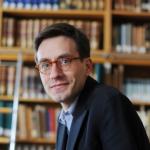As part of the Vilfredo Pareto Research Seminar series, the International Economics Department at the Graduate Institute is pleased to invite you to a public talk given by Davide Cantoni, Professor of Economics and Economic History at Ludwig-Maximilians-Universität München.
He will present his research entitled Persistence and Activation of Right-Wing Political Ideology.
Abstract: We argue that a long-run cultural persistence of right-wing ideology can explain the recent rise of right-wing populism. Shifts in the supply of party platforms can interact with this existing demand, and give rise to patterns of historical persistence. We study the context of Germany in the 2017 federal election, when the emergence of the AfD offered voters a populist right-wing option, with little social stigma attached. We show that municipalities that expressed strong support for the Nazi party in 1933 are more likely to vote for the AfD now, but not in 2013, when the AfD was a more moderate, fiscally conservative party. Using opinion surveys, we show that these dynamics are not generated by a concurrent demand shift: political attitudes do not shift sharply to the right in the municipalities with a history of Nazi support.
Davide Cantoni is an economist working on economic history and political economy. He studied economics in Mannheim, Berkeley, and Harvard, where he obtained his Ph.D. in 2010. After having worked as Assistant Professor at Universitat Pompeu Fabra (Barcelona, Spain), he is now Professor of Economic History at the University of Munich, Germany. His research covers various topics focusing on the political economy of educational content, the effect of institutions and culture on long-run development, and the dynamics of political change.




